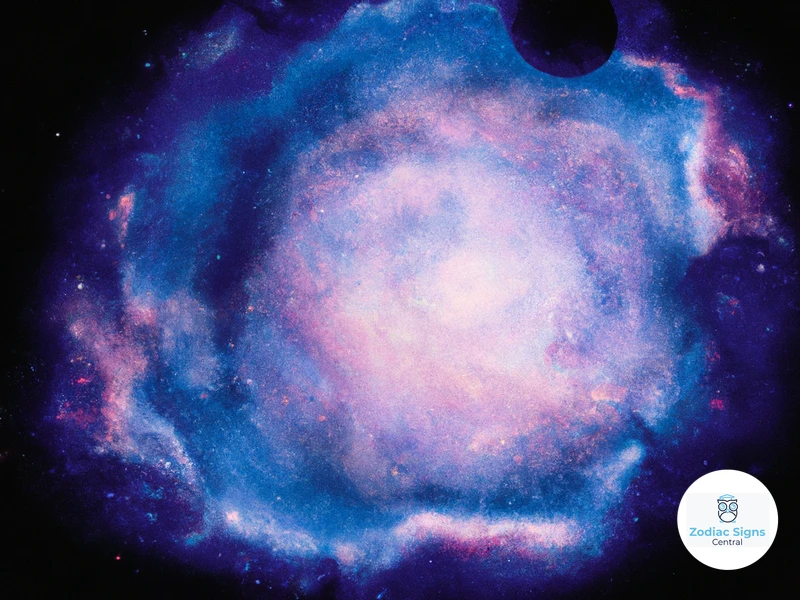Astrology has long been used as a tool for self-understanding, offering individuals a unique way to explore their personality traits, strengths, and weaknesses. But what exactly is astrology and how can it aid in our quest for self-discovery? In this comprehensive guide, we will delve into the world of astrology, its fascinating history, and its role in helping us understand ourselves on a deeper level. From birth charts to astrological aspects, we will explore the various elements of astrology that contribute to self-understanding. We will also examine how astrology can be used to identify strengths and weaknesses, promote personal growth, and navigate relationships. Whether you are a beginner or a seasoned astrology enthusiast, this article will provide you with the tools and knowledge to unlock the mysteries of the cosmos and gain valuable insights into your own life. So, let’s embark on this celestial journey together and uncover the secrets that astrology holds for self-understanding.
What is Astrology?

Astrology is a complex and ancient practice that has been used for centuries to gain insights into various aspects of life. Astrology is the study of the movements and positions of celestial bodies and their influence on human behavior and personality. It is believed that the position of the stars and planets at the time of a person’s birth can offer valuable information about their characteristics, strengths, and weaknesses. Astrology operates on the premise that there is a cosmic connection between the movements of celestial bodies and events happening on Earth. It is divided into different branches, including natal astrology, which focuses on an individual’s birth chart, and horary astrology, which seeks to answer specific questions based on the position of the stars and planets at a particular moment. While some people view astrology as a form of divination or fortune-telling, others see it as a tool for self-reflection and personal growth. Whether you are a skeptic or a believer, astrology undeniably has a profound impact on many individuals’ lives and offers a unique perspective on human existence and the forces that shape it. (source)
1.1 Definition of Astrology
The definition of astrology varies depending on cultural, historical, and individual perspectives. At its core, astrology is a system of divination that seeks to interpret the influence of celestial bodies on human behavior and events. It is widely believed that the positions of the stars, planets, and other celestial bodies at the time of a person’s birth can provide insights into their personality traits, strengths, weaknesses, and life events. Astrology is rooted in the belief that there is a cosmic interconnectedness between the movements of celestial bodies and the experiences of individuals on Earth. It is not limited to predicting future events but also aims to offer guidance and self-understanding. Astrology is used in various branches, including natal astrology, horary astrology, and predictive astrology, each focusing on different aspects of human life and the celestial influences at play. Throughout history, different cultures have developed their own astrological systems, such as Western astrology, Vedic astrology, and Chinese astrology, each with its unique methods and interpretations. While astrology is often met with skepticism, it continues to be practiced and valued by many individuals seeking a deeper understanding of themselves and their place in the world. (source)
1.2 Brief History of Astrology
Astrology has a long and rich history that can be traced back to ancient civilizations. Here is a timeline of important milestones in the development of astrology:
1. Ancient Mesopotamia (2000 BCE): Astrology finds its roots in ancient Mesopotamia, where celestial observations were closely linked to the gods and used to make predictions about the future. Tablets discovered in the region contain records of celestial events and their interpretations.
2. Ancient Egypt (2100 BCE): The Egyptians developed their own form of astrology, known as Egyptian astrology. They associated different deities with celestial bodies and believed that the movements of these bodies had a direct influence on human lives.
3. Ancient Greece (5th-4th century BCE): Greek philosophers, including Pythagoras and Plato, contributed to the development of astrology by incorporating mathematical principles into its practice. Astrology became more sophisticated, with the belief that specific celestial alignments had significant meanings.
4. Hellenistic Period (2nd century BCE): The Hellenistic period marked a turning point in astrology. Astrologers began creating horoscopes based on an individual’s birth chart, which became a central tool for interpreting celestial influences on a personal level.
5. Medieval Arab World (8th-14th century): During this time, astrological texts from ancient Greece were translated into Arabic, and astrology flourished under Islamic influence. Arab scholars made significant advancements in the field, including the refinement of astrological techniques and the development of predictive astrology.
6. Renaissance (14th-17th century): Astrology faced challenges during the Renaissance due to the rise of scientific revolution and skepticism. However, astrology continued to be practiced and adapted to fit the changing cultural landscape.
7. Modern Astrology (19th century to present): In the late 19th century, astrology experienced a resurgence in popularity, especially in Western societies. Astrologers started incorporating psychological and humanistic approaches, making astrology more accessible and relevant to individuals seeking self-understanding and personal growth.
Throughout its history, astrology has evolved and adapted to different cultural contexts, aligning with the prevailing beliefs and practices of the time. Today, astrology continues to attract millions of people who find value in its insights and guidance. (source)
How Astrology Can Aid Self-Understanding
Astrology can be a powerful tool for aiding self-understanding. By examining the unique placement of celestial bodies at the time of our birth, astrology provides insights into our personality traits, motivations, and life patterns. One way astrology aids in self-understanding is by offering a language to describe and interpret our experiences. Astrological symbols and archetypes serve as a framework for understanding our own behavior and the world around us. Through the analysis of our birth charts, we can gain a deeper understanding of our strengths, weaknesses, and areas for growth. Astrology also helps us to recognize patterns and cycles in our lives, offering guidance on how to navigate challenges and make the most of opportunities. By exploring the positions of planets and their aspects, astrology can shed light on why certain themes or experiences repeatedly occur in our lives. Astrology encourages self-reflection and introspection. It promotes a greater sense of self-awareness and provides us with the tools to uncover our unconscious patterns, desires, and fears. Astrology acts as a mirror, reflecting back to us our own unique essence and inviting us to embrace our authenticity. Ultimately, astrology can aid in self-understanding by offering a comprehensive framework for exploring our individuality and empowering us to embrace all aspects of ourselves.
The Role of Sun Signs in Self-Understanding
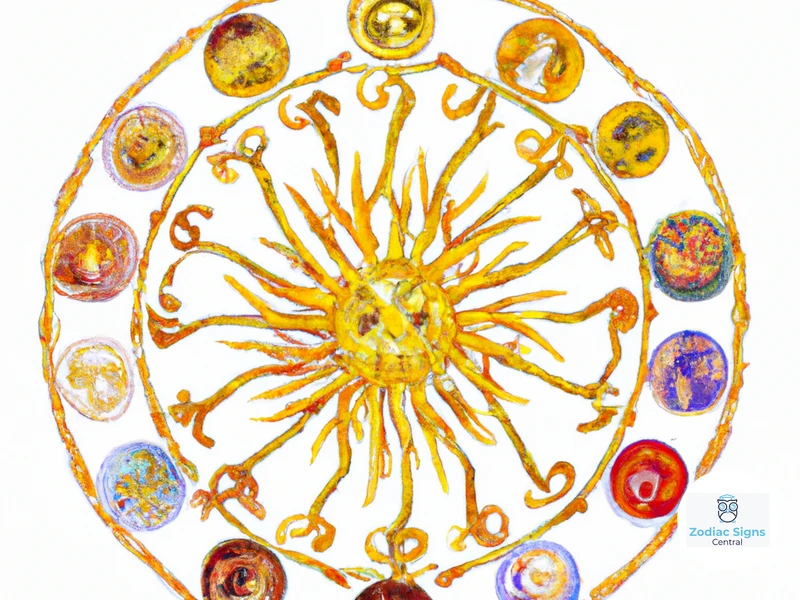
The Role of Sun Signs in Self-Understanding is crucial when exploring astrology. Your sun sign, also known as your zodiac sign, is determined by the position of the sun at the time of your birth. It represents your core essence and is often considered the most important element in astrology. Each sun sign has its own unique traits, characteristics, and qualities that influence your personality and behavior. For example, Aries individuals are known for their assertiveness and passion, while Taurus individuals are known for their practicality and determination. Understanding your sun sign can provide valuable insights into your strengths, weaknesses, and how you interact with the world around you. However, it’s important to remember that while your sun sign is significant, it only represents one aspect of your astrological makeup. It is just the tip of the iceberg when it comes to delving deeper into the complexities of your birth chart and overall astrological profile. So, while your sun sign serves as a starting point, exploring other astrological factors is essential for a more comprehensive self-understanding.
The Importance of Birth Charts
Birth charts are essential in astrology as they offer a detailed snapshot of the celestial positions at the time of an individual’s birth. Also known as natal charts, they provide valuable insights into a person’s personality, strengths, and challenges. A birth chart is created by mapping the exact placement of the Sun, Moon, and planets on the zodiac wheel at the precise moment of an individual’s birth. This unique configuration captures the energy and potential that each person carries throughout their lifetime. By analyzing the different planetary positions and their relationships to each other, astrologers can interpret the various aspects of a person’s life, such as their career, relationships, and emotional well-being. Understanding your birth chart can empower you to make informed decisions and gain a deeper understanding of your life’s purpose and potential. (source)
4.1 Understanding Birth Charts
Understanding birth charts is a fundamental aspect of astrology and plays a crucial role in self-understanding. A birth chart, also known as a natal chart, is a snapshot of the sky at the exact moment of an individual’s birth. It serves as a cosmic blueprint that outlines the positions of the planets, the Sun, the Moon, and other celestial bodies in relation to the Earth. By interpreting the symbols and patterns in a birth chart, astrologers can uncover valuable insights into an individual’s personality, potential, and life experiences.
The birth chart consists of twelve houses, each representing different areas of life, such as career, relationships, and personal growth. Each of these houses is governed by a zodiac sign, and the position of the planets in these signs can offer clues about the individual’s characteristics and tendencies. For example, the placement of the Sun in the birth chart represents one’s core identity, ego, and life purpose. Understanding the sign and house placement of the Sun can shed light on an individual’s dominant traits and aspirations.
In addition to the Sun, other planets, such as Mercury, Venus, Mars, and Jupiter, also have specific significations in the birth chart. Each planet represents different areas of life and carries its own energy and symbolism. Analyzing the interactions between these planets through aspects, such as conjunctions, oppositions, trines, and squares, provides further insight into an individual’s strengths, challenges, and potential for growth.
To understand birth charts, it is important to learn the meanings and symbolism associated with each zodiac sign and planet. Astrology books, online resources, and consultations with professional astrologers can provide valuable information and guidance in interpreting birth charts. By understanding the unique combination of planetary placements in a birth chart, individuals can gain a deeper understanding of themselves and their life path, allowing them to make more informed decisions and embrace their true potential.
4.2 Analyzing Birth Charts
Analyzing birth charts is a crucial aspect of astrology, as it allows us to delve deeper into the intricate details of an individual’s personality and life path. When examining a birth chart, astrologers consider the positions of the planets, the twelve houses, and the aspects between the celestial bodies. The birth chart is essentially a snapshot of the sky at the exact moment and location of someone’s birth. It is a personalized map that provides insights into a person’s character, tendencies, and potential life events.
To analyze a birth chart, astrologers look at various factors. They consider the placement of the Sun, Moon, and rising sign, as these three elements are considered the most important in determining a person’s core identity. The Sun represents our ego, vitality, and life purpose, while the Moon reflects our emotional nature and inner self. The rising sign, also known as the ascendant, influences our outward appearance and first impressions.
Additionally, astrologers analyze the positions of the planets in the houses of the birth chart. Each house represents a different aspect of life, such as career, relationships, and personal growth. The planetary placements in these houses offer insights into the areas of life that are emphasized or challenged for an individual.
Astrologers examine the aspects between planets in a birth chart. Aspects are angles formed between celestial bodies, and they reveal the dynamics and relationships between these energies. Major aspects like conjunctions, oppositions, trines, and squares indicate strong influences and potential challenges, while minor aspects like sextiles and quincunxes provide additional nuances to the interpretation.
By analyzing birth charts, astrologers can provide individuals with valuable insights into their personality traits, strengths, and challenges. This process helps individuals gain a deeper understanding of themselves and navigate their life choices more effectively. It is important to note that while the birth chart provides a foundation for self-analysis, individual experiences and personal growth also play significant roles in shaping one’s destiny. The analysis of birth charts should be seen as a tool for self-reflection and guidance rather than a definitive determinant of fate.
Exploring the Elements and Modalities in Astrology
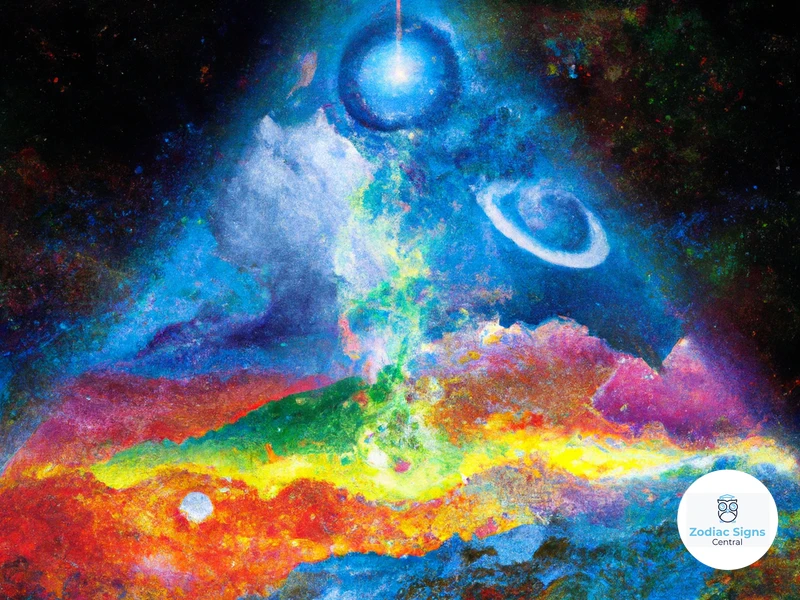
In astrology, the elements and modalities play a significant role in understanding an individual’s personality and behavior. There are four elements—fire, earth, air, and water—each representing different qualities and traits. Fire signs, such as Aries and Leo, are known for their passion and enthusiasm, while earth signs like Taurus and Capricorn are grounded and practical. Air signs, including Gemini and Libra, are intellectual and communicative, while water signs like Cancer and Pisces are emotional and intuitive. Additionally, the three modalities—cardinal, fixed, and mutable—further enhance our understanding of personality dynamics. Cardinal signs, such as Aries and Cancer, are initiators and leaders, whereas fixed signs like Taurus and Leo are stable and determined. Mutable signs, including Gemini and Sagittarius, are adaptable and flexible. By exploring the elements and modalities in astrology, we gain valuable insights into both ourselves and others, fostering greater understanding and harmony in our relationships and personal growth.
5.1 The Elements: Fire, Earth, Air, and Water
The elements in astrology play a significant role in understanding our personalities, motivations, and behaviors. Astrology classifies the elements into four categories: Fire, Earth, Air, and Water. Each element represents different qualities and characteristics that shape our individuality.
Fire signs (Aries, Leo, and Sagittarius) are passionate, spontaneous, and energetic. They are driven by their desires, often seeking excitement and adventure in their lives. Fire signs are known for their enthusiasm, leadership skills, and ability to inspire others. However, they can also be impulsive and quick-tempered at times.
Earth signs (Taurus, Virgo, and Capricorn) are grounded, practical, and dependable. They are focused on stability, material possessions, and tangible results. Earth signs have a strong work ethic, are reliable, and value security. However, they can also be stubborn and hesitant to change.
Air signs (Gemini, Libra, and Aquarius) are intellectual, communicative, and social. They are curious and love to gather knowledge, engage in conversations, and explore new ideas. Air signs are adept at critical thinking, diplomacy, and problem-solving. However, they can be indecisive and detached emotionally at times.
Water signs (Cancer, Scorpio, and Pisces) are emotional, intuitive, and empathetic. They are deeply in touch with their feelings and the emotions of others. Water signs are known for their compassion, creativity, and sensitivity. However, they can also be moody and prone to emotional outbursts.
Understanding the elements allows us to gain insights into our personalities and how we interact with the world around us. It helps us recognize our strengths, weaknesses, and areas for growth. By embracing the qualities of our dominant element and striving to balance the others, we can navigate life with a greater sense of self-awareness and harmony.
5.2 The Modalities: Cardinal, Fixed, and Mutable
In astrology, the modalities refer to the three different modes or qualities that signs possess: cardinal, fixed, and mutable. These modalities play a significant role in shaping a person’s approach to life, their ability to initiate action, and their adaptability to change.
Cardinal signs are known for their leadership qualities and their ability to initiate and drive change. They are often seen as dynamic and proactive individuals who take charge and push for progress. Aries, Cancer, Libra, and Capricorn are the four cardinal signs in the zodiac.
Fixed signs are characterized by stability and a strong sense of determination. They are known for their loyalty and dependability. Taurus, Leo, Scorpio, and Aquarius represent the fixed signs. These individuals are often unwavering in their beliefs, dedicated to their goals, and resistant to change.
Mutable signs are adaptable and flexible. They are comfortable with change and can easily adjust to new circumstances. Gemini, Virgo, Sagittarius, and Pisces make up the mutable signs. People with mutable signs are often seen as versatile, open-minded, and able to go with the flow.
Understanding the modality of a sign in a birth chart can provide valuable insights into an individual’s approach to life and their ability to adapt to different situations. It can help them harness their strengths and navigate challenges accordingly. For example, someone with a dominant cardinal modality may thrive in leadership roles and excel at taking initiative, while someone with a strong mutable modality may be more adaptable and able to embrace change.
By considering the modalities in astrology, we gain a richer understanding of the diverse ways individuals interact with the world around them. Whether we identify with the assertiveness of cardinal signs, the stability of fixed signs, or the adaptability of mutable signs, recognizing and embracing these modalities can lead to self-discovery and personal growth.
Understanding Astrological Aspects
Astrological aspects play a significant role in understanding the influence of celestial bodies on our lives. Aspects refer to the angles between planets in a birth chart and the relationships they form with one another. These angles can create harmonious or challenging energies that shape our personalities and experiences. The major aspects include the conjunction, which signifies a merging of energies; the opposition, representing polarity and conflict; the trine, symbolizing ease and harmony; and the square, indicating tension and challenges. Minor aspects, such as the sextile and quincunx, introduce subtler influences. The interpretation of these aspects in a birth chart provides valuable insight into how different energies interact within an individual’s life and personality. Understanding astrological aspects allows us to better comprehend the complex interplay of planetary energies and the potential impact they can have on our lives and relationships.
6.1 Major Aspects: Conjunction, Opposition, Trine, Square
Major aspects, including conjunction, opposition, trine, and square, play a vital role in astrology, providing deeper insights into the relationships and dynamics between celestial bodies in a birth chart. These aspects refer to the geometric angles formed between planets and other significant points in the chart. Here is a breakdown of each major aspect:
1. Conjunction: A conjunction occurs when two or more planets are closely aligned in the same zodiac sign or within a few degrees of each other. This aspect signifies a merging of planetary energies, intensifying their combined influence. A conjunction indicates a powerful union and amplifies the traits associated with the planets involved. It can symbolize harmony, heightened focus, or even challenges arising from the intense blending of energies.
2. Opposition: Opposition happens when planets are approximately 180 degrees apart from each other. This aspect reveals a tension or dynamic polarity between the involved planets. It represents a balance of opposing energies and often brings awareness to the dichotomy within ourselves and our relationships. An opposition can signify a need for integration and finding a middle ground between conflicting qualities or experiences.
3. Trine: Trine occurs when planets are approximately 120 degrees apart, forming a harmonious and flowing connection. This aspect signifies a natural affinity and compatibility between planets, allowing their energies to blend seamlessly. Trines typically bring positive opportunities, ease, and effortless expression of the traits associated with the involved planets. They encourage cooperation, creativity, and the realization of potential.
4. Square: A square aspect occurs when planets are approximately 90 degrees apart, forming a challenging and dynamic relationship. This aspect represents inner conflicts, tension, and obstacles that need to be overcome for growth and personal development. Squares often push us out of comfort zones, prompting change and transformation. They bring energy, drive, and determination to resolve conflicts and find solutions.
Understanding these major aspects in a birth chart provides valuable insights into how different planetary energies interact and influence an individual’s life. The aspects indicate the potential strengths, challenges, and dynamics within an individual’s personality and experiences. By studying the major aspects, astrologers can gain a deeper understanding of the complexities and nuances present in a birth chart, allowing for more accurate and insightful interpretations.
6.2 Minor Aspects: Sextile, Quincunx
Minor aspects in astrology, specifically the sextile and quincunx, hold significance in understanding the nuances of astrological charts. The sextile aspect occurs when two planets are approximately 60 degrees apart, creating a harmonious and cooperative energy between them. This aspect is considered favorable, as it promotes opportunities for growth, creativity, and productive partnerships. It is known for its ability to bring together different elements of one’s life in a harmonious manner, making it an aspect associated with positive outcomes and easy communication.
On the other hand, the quincunx aspect occurs when two planets are approximately 150 degrees apart, creating a challenging and somewhat discordant energy between them. This aspect requires adjustment and adaptation, as the energies of the planets involved do not naturally align. The quincunx aspect represents a need for change and transformation in order to find balance and resolution. It often brings about a sense of tension and discomfort, pushing individuals to make necessary adjustments in their lives to achieve harmony.
Both the sextile and quincunx aspects provide valuable insights into the dynamics of relationships, personal growth, and the challenges we may face in life. Studying these aspects in combination with other elements of the birth chart can offer a more comprehensive understanding of an individual’s strengths, weaknesses, and areas for personal development. It is through the examination of these minor aspects that astrologers gain a deeper understanding of the intricacies and complexities of the human experience.
Using Astrology to Identify Strengths and Weaknesses
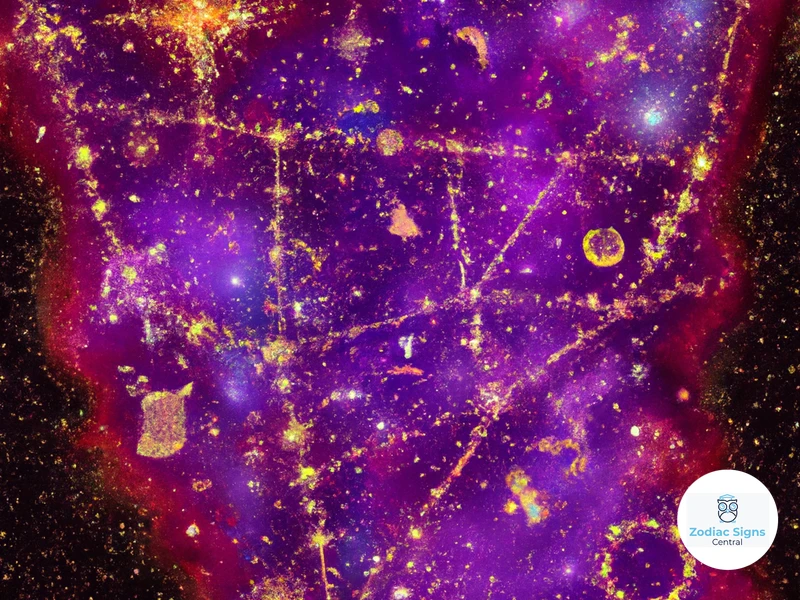
Using astrology as a tool for self-understanding can help us identify our strengths and weaknesses, providing valuable insights into our personality traits and behaviors. By analyzing the placements of the signs and planets in our birth chart, we can gain a deeper understanding of our inherent abilities and talents. For example, if someone has their Sun in Leo, they may possess natural leadership qualities, creativity, and a strong sense of self-expression. On the other hand, astrology can also shed light on our weaknesses and challenges. For instance, someone with their Moon in Scorpio may struggle with emotional intensity and possessive tendencies. By recognizing these areas of opportunity, we can work towards personal growth and development. With astrology, we can embrace our strengths and consciously address our weaknesses, ultimately leading to a more balanced and fulfilling life. (source)
7.1 Identifying Strengths Based on Sign Placements
Identifying strengths based on sign placements is a fundamental aspect of astrology. The position of the planets in the different zodiac signs can provide valuable insights into an individual’s inherent abilities and talents. Each zodiac sign is associated with specific qualities and characteristics that influence the strengths and weaknesses of the respective planet. Here is a breakdown of strengths based on sign placements:
- Aries: Individuals with planets in Aries exhibit strength in their assertiveness, leadership skills, and ability to take initiative.
- Taurus: Taurus placements signify strength in determination, perseverance, and practicality. These individuals excel in building stability and security.
- Gemini: People with planets in Gemini possess strengths in communication, adaptability, and intellectual versatility. They excel in networking and learning.
- Cancer: Cancer placements indicate strengths in empathy, nurturing, and emotional intelligence. These individuals excel in creating a nurturing environment.
- Leo: Leo placements signify strengths in creativity, leadership, and self-expression. They have a natural ability to shine and take center stage.
- Virgo: Individuals with planets in Virgo exhibit strengths in organization, attention to detail, and practical problem-solving. They excel in analytical thinking.
- Libra: Libra placements indicate strengths in diplomacy, fairness, and harmonious relationships. These individuals excel in bringing balance and harmony into their interactions.
- Scorpio: Scorpio placements signify strengths in intensity, transformation, and depth. They excel in uncovering hidden truths and exploring the depths of their emotions.
- Sagittarius: People with planets in Sagittarius possess strengths in adventure, optimism, and broad-mindedness. They excel in expanding their horizons and seeking knowledge.
- Capricorn: Capricorn placements indicate strengths in ambition, discipline, and practicality. These individuals excel in building long-term success and fulfilling their goals.
- Aquarius: Aquarius placements signify strengths in innovation, independence, and humanitarianism. They excel in thinking outside the box and making a positive impact on society.
- Pisces: Individuals with planets in Pisces exhibit strengths in empathy, intuition, and creativity. They excel in artistic endeavors and connecting with others on a deep emotional level.
Understanding these sign placements can help individuals harness their innate abilities and make the most of their strengths. It is important to note that while these general characteristics apply to each zodiac sign, the overall birth chart and other planetary aspects also influence an individual’s strengths. By recognizing and embracing these strengths, individuals can navigate life with self-assurance and achieve personal growth.
7.2 Recognizing Weaknesses and Challenges
Recognizing weaknesses and challenges is an essential aspect of self-understanding through astrology. By analyzing our birth charts and understanding the planetary placements and aspects, we can identify areas where we may face difficulties or have weaknesses. Each astrological sign has its own set of strengths and weaknesses, and understanding these can help us navigate through life with greater self-awareness and acceptance. For example, a person with a Leo Sun sign may have a natural inclination towards leadership and creativity but may struggle with being overly self-centered or needing constant attention. By recognizing these weaknesses, individuals can work on developing strategies to overcome or manage them. Astrology also provides insights into the challenges we may encounter based on the placement of certain planets or aspects in our birth charts. For instance, a challenging aspect between Saturn and Mars may indicate a tendency to experience frustration or delays in achieving our goals. This knowledge allows us to approach these challenges with a sense of preparedness and develop strategies to overcome obstacles. Embracing our weaknesses and challenges gives us an opportunity for personal growth and development, empowering us to work on these areas and become the best versions of ourselves.
Using Astrology as a Tool for Personal Growth
Astrology offers a powerful tool for personal growth and self-improvement. By delving into the depths of our birth charts and understanding the unique planetary placements, we can gain valuable insights into our strengths, weaknesses, and potential for growth. Astrology provides a roadmap for self-discovery and offers guidance on embracing our personal potential. Through the exploration of our astrological profiles, we can uncover hidden talents, passions, and areas of life where we may face challenges. By understanding our astrological influences, we can make more informed decisions, set realistic goals, and develop strategies to overcome obstacles. Astrology can also help us gain a deeper understanding of our subconscious patterns and behaviors, allowing us to break free from negative cycles and make positive changes in our lives. Whether we seek to enhance our career, improve relationships, or simply work on our personal well-being, astrology can serve as a valuable tool for self-reflection and personal growth, empowering us to live more fulfilling and authentic lives.
8.1 Embracing Personal Potential
When it comes to embracing personal potential, astrology can be a powerful tool for self-discovery and growth. Astrology can provide insights into our unique talents, strengths, and abilities, helping us understand and embrace our full potential. By analyzing our birth chart, we can uncover the planetary positions and aspects that indicate areas where we may excel and shine. For example, the placement of the Sun in our birth chart can shed light on our core essence and the qualities we possess that are meant to be expressed and celebrated. As we delve deeper into our astrological profile, we can identify the areas of life where we have the greatest potential for success and fulfillment. It might be through creative endeavors, leadership roles, nurturing relationships, or intellectual pursuits. Astrology can guide us in recognizing these inherent gifts and encourage us to embrace them fully, allowing us to tap into our personal potential and live a more purposeful life. By aligning our actions and choices with our astrological insights, we can unlock the doors to personal growth and cultivate a sense of fulfillment and authenticity in all that we do. (source)
8.2 Navigating Life’s Challenges
Navigating Life’s Challenges is an important aspect of using astrology as a tool for personal growth and self-understanding. In astrology, the birth chart serves as a roadmap that can help individuals understand the challenges they may face throughout their lives and provide guidance on how to overcome them. Each planet and aspect in the birth chart represents different energies and influences that shape our experiences. By analyzing these components, astrologers can identify potential areas of difficulty or obstacles that individuals may encounter.
When it comes to navigating life’s challenges, astrology offers insights into how we can harness our strengths and work on overcoming our weaknesses. For example, if someone has a challenging aspect between Mars and Saturn in their birth chart, it may indicate a tendency to face obstacles or setbacks in their ambitions and goals. In this case, astrology can provide guidance on developing resilience, patience, and determination to overcome these challenges.
Additionally, astrology can shed light on the timing and duration of certain challenges. By looking at the transits and progressions in a person’s birth chart, astrologers can pinpoint periods when specific challenges or opportunities are more likely to arise. This knowledge can help individuals prepare themselves mentally and emotionally, enabling them to navigate these challenging times with greater ease and understanding.
Astrology can provide valuable insights into the lessons we need to learn from our challenges. For example, if someone consistently experiences difficulties in their relationships, their birth chart may reveal patterns or themes related to communication or emotional vulnerability. Understanding these patterns can empower individuals to work on personal growth and make positive changes in these areas.
It is important to note that astrology is not a means to avoid challenges or guarantee a smooth path in life. Instead, it offers a perspective that encourages personal reflection, growth, and resilience. By using astrology as a tool to navigate life’s challenges, individuals can gain a deeper understanding of themselves, their strengths, and their potential for growth. With this knowledge, they can approach challenges with grace and determination, ultimately leading to personal development and a more fulfilling life journey.
Astrology and Relationships
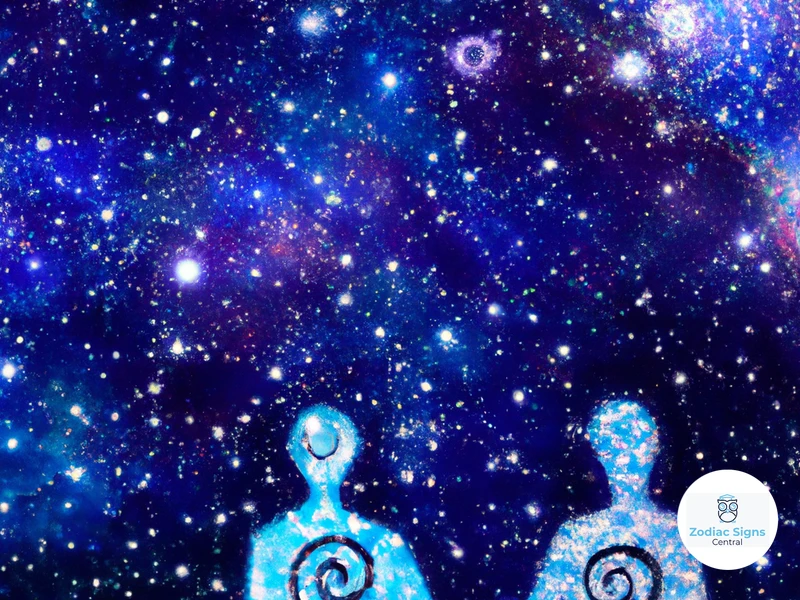
Astrology plays an intriguing role in the realm of relationships, offering insights into compatibility and dynamics between individuals. Astrology and relationships go hand in hand, as the alignment of the stars and planets at the time of our birth can shed light on the dynamics that we may experience in our romantic partnerships, friendships, or familial relationships. By analyzing birth charts and examining the astrological aspects between two individuals, astrologers can explore the strengths and challenges that may arise in a relationship. Each zodiac sign has unique qualities and characteristics that can either complement or clash with those of another sign, and understanding these dynamics can be immensely helpful in fostering healthy and harmonious connections. Astrology can also help us identify patterns and themes that tend to repeat in our relationships, offering valuable insight into our own patterns of behavior and areas for personal growth. Whether you consult a professional astrologer or explore the subject on your own, astrology can provide a fascinating lens through which to understand and navigate the complex world of relationships.
9.1 Compatibility and Relationship Dynamics
Understanding compatibility and relationship dynamics is a key aspect of astrology that can provide valuable insights into our connections with others. When it comes to relationships, astrology looks at the compatibility between individuals based on their zodiac signs and other astrological factors. Compatibility is determined by examining the positions of the planets and their aspects in each person’s birth chart. This analysis can reveal potential areas of harmony or conflict between two individuals. For example, certain astrological signs may naturally complement each other, while others may clash due to inherent differences in personality traits and communication styles. By understanding these dynamics, individuals can gain a deeper understanding of their relationships and make more informed choices about the people they choose to build connections with. Astrology can provide insight into the dynamics of romantic partnerships, friendships, and even business relationships. It can help identify shared values, areas of mutual understanding, and potential challenges that may arise in a relationship. Additionally, astrology can shed light on the overall compatibility between two individuals, providing guidance on the potential longevity and strength of a partnership. By using astrology as a tool for understanding compatibility and relationship dynamics, individuals can navigate their relationships with greater awareness and insight, fostering healthier and more fulfilling connections with others.
9.2 Understanding Relationship Patterns
Understanding relationship patterns is a crucial aspect of using astrology as a tool for self-understanding. Astrology can provide valuable insights into the dynamics and patterns that emerge within our relationships, offering a deeper understanding of why we relate to others in specific ways. By examining the placements of the planets in our birth charts, we can gain insight into our relationship tendencies and behaviors. For example, the position of Venus, the planet associated with love and relationships, can provide clues about how we express affection, what we value in a partner, and how we seek harmony in our relationships. Additionally, aspects between Venus and other planets can shed light on the challenges we may encounter in our romantic partnerships. For instance, a square aspect between Venus and Saturn may indicate a tendency to feel restricted or inhibited in expressing love and affection, while a trine aspect between Venus and Jupiter may suggest a naturally harmonious and expansive approach to relationships. Exploring these patterns and aspects in our birth charts can help us gain self-awareness and recognize recurring relationship themes and challenges. Armed with this knowledge, we can work towards understanding and transforming our relationship patterns, fostering healthier and more fulfilling connections with others.
Your Birth Chart as a Map of Self-Understanding
Your birth chart, also known as a natal chart, is essentially a map of the sky at the moment you were born. This unique snapshot of the cosmos can serve as a powerful tool for self-understanding and gaining insights into your personality, strengths, and weaknesses. A birth chart is calculated using the date, time, and location of your birth, and it provides a detailed representation of the positions of the various celestial bodies at that precise moment. The birth chart is divided into twelve houses, each representing different aspects of life, such as love, career, and spirituality. These houses are further influenced by the signs of the zodiac and the planetary placements within them. For example, the sign that the Sun was in at the time of your birth, known as your Sun sign, plays a significant role in shaping your identity and ego. Additionally, the positions of other planets, such as the Moon and Mercury, offer valuable insights into your emotional nature and communication style. By studying the different elements of your birth chart, you can gain a deeper understanding of your unique qualities, motivations, and potentials. Analyzing the aspects, which are the angles between planets, can provide information about your strengths and challenges in various areas of life. While interpreting your birth chart may initially seem overwhelming, there are numerous resources available, such as online birth chart calculators and professional astrologers, who can guide you in deciphering its intricacies. So, dive deep into the cosmic blueprint of your birth chart, explore its symbols, and unlock the profound wisdom it holds for self-understanding and personal growth.
Tools for Exploring Astrology
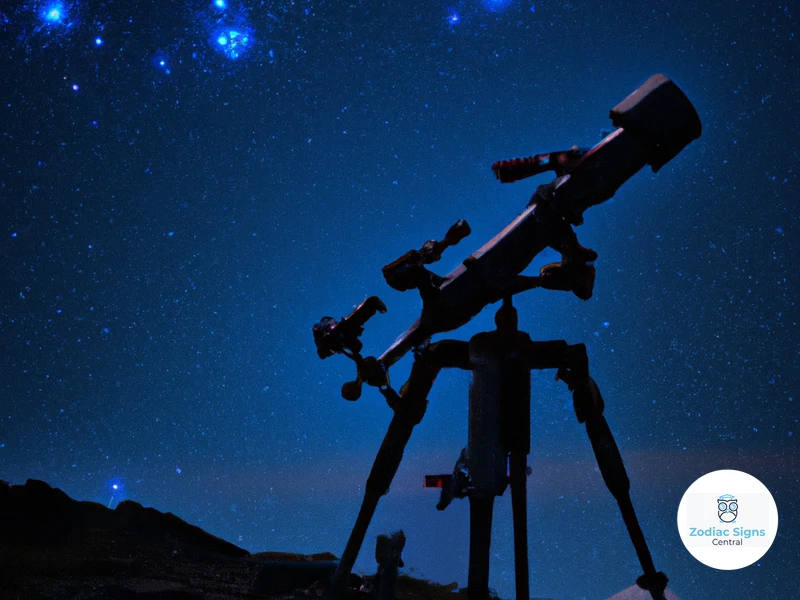
When it comes to exploring astrology and gaining a deeper understanding of its principles, there are various tools and resources available. These tools can assist both beginners and seasoned enthusiasts in their astrological journey. Professional astrologers are invaluable resources, as their expertise and guidance can provide personalized insights and interpretations of birth charts and astrological aspects. They can help individuals explore their unique astrological makeup and offer guidance on how to apply astrological insights to their lives. Additionally, online astrology resources have become increasingly popular, offering accessible information, birth chart generators, and interactive tools that allow users to delve into the intricacies of their astrological profiles. Websites, blogs, and forums dedicated to astrology provide a wealth of information, horoscopes, and discussions that can facilitate growth and understanding. Whether seeking guidance from a professional astrologer or exploring online resources, these tools provide the means to deepen one’s knowledge and application of astrology.
11.1 Professional Astrologers
When it comes to delving deeper into the world of astrology and gaining personalized insights, seeking guidance from professional astrologers can be incredibly beneficial. These experts have devoted years to studying and understanding the intricacies of astrology, allowing them to offer detailed and accurate interpretations of birth charts, astrological aspects, and other astrological factors. Here are some key reasons why consulting with professional astrologers can enhance your self-understanding journey:
1. Expertise and Knowledge: Professional astrologers possess a deep understanding of astrology and its various branches. They have invested considerable time and effort into learning about the planets, zodiac signs, and intricate calculations involved in interpreting birth charts. With their expertise, they can provide comprehensive insights tailored specifically to your unique astrological makeup.
2. Objective Perspective: Sometimes, our own subjectivity can cloud our judgment and prevent us from seeing the bigger picture. Professional astrologers offer an unbiased and objective perspective on your birth chart and astrological readings. This allows them to provide insights and interpretations that you may not have considered, helping you gain a deeper understanding of yourself.
3. Guidance and Clarity: Understanding astrological concepts and their implications can be overwhelming, especially for those new to astrology. Professional astrologers can simplify complex astrological factors and provide clear explanations. They can guide you through the meanings of different planetary positions, aspects, and transits, helping you make sense of their impact on your life.
4. Validation and Affirmation: Sometimes, we seek validation and affirmation of our experiences and emotions. Professional astrologers can provide this validation by highlighting the astrological factors that align with your personal experiences, strengths, and challenges. This validation can be empowering and bring a sense of reassurance and self-acceptance.
5. Personalized Recommendations: Professional astrologers can provide you with personalized recommendations based on your birth chart and individual needs. They can suggest practices, remedies, or exercises that can help you harness your strengths, navigate challenges, and promote personal growth. These tailored recommendations can guide you towards self-improvement and self-fulfillment.
While professional astrologers can offer valuable insights, it’s important to approach their services with a sense of openness and discernment. Look for reputable and well-established astrologers who adhere to ethical practices. Building a rapport and trust with your chosen astrologer is essential to foster a supportive and productive client-practitioner relationship. Remember, astrology is just one tool in the journey of self-understanding, and combining it with other methods and introspection can lead to a holistic understanding of oneself.
11.2 Online Astrology Resources
Online astrology resources have become increasingly popular and accessible, providing a wealth of information and tools for those interested in exploring astrology. These resources range from websites and blogs dedicated to astrology, to online astrology forums and communities where individuals can interact and share their experiences. Online astrology resources offer a convenient way to access a vast amount of astrological knowledge, as well as personalized readings and interpretations. Many websites provide free birth chart calculations, allowing users to generate their natal charts and delve into the various aspects of their astrological makeup. These online resources also often offer articles, blog posts, and videos that cover a wide range of astrological topics, such as planetary transits, lunar cycles, and compatibility analysis. Additionally, online astrology resources may provide access to professional astrologers who offer personalized consultations and readings via video calls or email. This allows individuals to receive professional guidance and interpretations based on their unique birth charts without having to leave the comfort of their own homes. Whether you are a seasoned astrology enthusiast or a beginner seeking to explore this ancient practice, online astrology resources provide a valuable and convenient way to deepen your understanding and engage with the astrological community.
Interpreting and Applying Astrological Insights
Interpreting and applying astrological insights is an essential part of utilizing astrology as a tool for self-understanding and growth. Once you have gained knowledge about your birth chart and the various astrological elements, it’s time to delve into the process of interpretation. Here are some key steps to guide you:
1. Chart Analysis: Start by analyzing the different components of your birth chart, such as the Sun sign, Moon sign, rising sign, and planetary placements. Each of these elements holds valuable information about your personality, emotions, relationships, and life path.
2. Aspects Examination: Pay attention to the aspects formed between planets in your birth chart. Major aspects, such as conjunctions, oppositions, trines, and squares, reveal significant dynamics and tensions in your life. Minor aspects, like sextiles and quincunxes, offer additional layers of insight into your behavior and interactions.
3. Symbolic Interpretation: Study the symbolism of each planet, sign, and house in your birth chart. Understanding the archetypal meaning behind these symbols can provide profound insights into your core traits, desires, and life experiences.
4. Integration: Incorporate the insights gained from interpreting your birth chart into your daily life. Reflect on how your astrological makeup influences your thoughts, emotions, and actions. Use this awareness to make conscious choices and embrace your strengths while working on your weaknesses.
5. Seek Guidance: If you find the interpretation process overwhelming or need further insights, consider consulting with a professional astrologer. They can provide personalized interpretations and guidance based on your birth chart and specific concerns.
Remember that astrology is not deterministic, but rather a tool for self-reflection and awareness. It is up to you to apply the insights gained from astrology in a way that resonates with your unique journey. By interpreting and applying astrological insights, you can gain a deeper understanding of yourself, navigate life’s challenges more effectively, and embark on a path of personal growth.
Astrology and other Self-Understanding Tools

Astrology is just one of many tools available for self-understanding and personal growth. While astrology focuses on the influence of celestial bodies on our lives and personalities, there are other self-understanding tools that delve into different aspects of our being and provide additional insights. For example, psychology offers a scientific approach to understanding the human mind and behavior, exploring topics such as personality development, cognitive processes, and emotional well-being. Personal development practices, such as mindfulness and meditation, help individuals cultivate self-awareness, manage stress, and enhance their overall well-being. Tarot cards, numerology, and other divination techniques also provide unique perspectives and guidance. The engagement with multiple self-understanding tools can lead to a more holistic understanding of oneself, combining astrological insights with psychological principles, personal development practices, and other divination methods. Each tool offers a different lens through which we can explore and understand our inner selves, allowing us to embrace our strengths, work on our weaknesses, and cultivate personal growth. Whether we choose to engage with astrology alone or incorporate it into a broader toolkit of self-discovery, each individual can find the approach that resonates with them and aids them in their journey of self-understanding.
13.1 Astrology and Psychology
Astrology and psychology have a fascinating relationship, as both disciplines aim to understand and explore the complexities of human behavior and consciousness. Astrology and psychology intersect in their shared interest in understanding the depths of human nature and offering insights into the mysteries of the mind. Astrology can provide valuable psychological insights by examining the unique combination of planetary placements and aspects in an individual’s birth chart. By analyzing these astrological factors through a psychological lens, astrologers can gain a deeper understanding of a person’s personality traits, motivations, and unconscious patterns. Astrology can serve as a powerful tool for self-reflection and personal growth. It can help individuals gain insights into their subconscious drives, identify areas for self-improvement, and illuminate the psychological dynamics at play in their lives. Astrology can complement psychological theories and therapeutic approaches by offering a holistic perspective on human experience that takes into account cosmic influences. While astrology is not a substitute for professional psychological counseling, it can be used as a complementary tool for self-discovery and self-understanding, aiding individuals on their journey toward self-awareness, healing, and personal development. (source)
13.2 Astrology and Personal Development
Astrology has long been used as a tool for personal development, allowing individuals to gain insight into their strengths, weaknesses, and areas of personal growth. By understanding the cosmic energies at play in their birth chart, individuals can identify areas for improvement and work towards personal development goals. Astrology can provide guidance and direction for those seeking to become the best version of themselves. It can shed light on patterns and behaviors that may be holding individuals back and offer strategies for overcoming obstacles and making positive changes. By exploring their astrological placements, individuals can gain a deeper understanding of their personality traits and how they can harness their strengths to achieve personal growth. Astrology can also provide valuable insights into areas such as career choices, relationships, and decision-making processes, helping individuals make choices that align with their values and aspirations. Ultimately, astrology can be a powerful tool for personal development, enabling individuals to navigate life’s challenges, tap into their full potential, and create a life that is aligned with their true selves.
Conclusion
In conclusion, astrology serves as a powerful tool for self-understanding and personal growth. By delving into the realms of astrology, individuals can gain valuable insights into their personality traits, strengths, and weaknesses. It offers a unique perspective on one’s life journey and helps navigate the complexities of relationships and challenges. Astrology allows individuals to embrace their personal potential and make conscious choices to enhance their lives. Whether it is through understanding birth charts, exploring astrological aspects, or identifying strengths and weaknesses, astrology provides a roadmap for self-discovery and self-improvement. Furthermore, astrology can be complemented with other self-understanding tools such as psychology and personal development, creating a holistic approach to self-exploration. As individuals delve deeper into the world of astrology, they may find a greater sense of connection, purpose, and fulfillment in their lives. So, embrace the wisdom of the stars and unlock the secrets of self-understanding with the timeless practice of astrology.
Frequently Asked Questions

1. Can astrology predict the future?
Astrology is not meant to predict the future with certainty. It provides insights into the energies and influences present at a given time, allowing individuals to make informed decisions and understand potential outcomes.
2. Is astrology a science?
Astrology is not considered a science in the traditional sense. It is seen as a metaphysical practice that combines mathematical calculations with interpretations to understand the symbolic meanings behind celestial movements.
3. Are all Sun signs the same?
No, each Sun sign represents different personality traits and characteristics. While the Sun sign is an essential component of the birth chart, it is influenced by other factors, such as the positions of other planets, which make each individual unique.
4. Can astrology be used for career guidance?
Astrology can provide insights into an individual’s strengths, talents, and natural inclinations, which can be useful in career decision-making. Understanding one’s astrological influences can help align career choices with personal fulfillment.
5. Do birth charts change over time?
No, birth charts remain the same throughout a person’s life. However, the positions of the planets continue to shift, creating different planetary transits and aspects that influence experiences and events as time progresses.
6. Can astrology help improve relationships?
Astrology can contribute to improving relationships by providing insights into the dynamics between individuals, compatibility factors, and potential areas of growth. It can foster understanding and open communication in partnerships.
7. Is astrology only based on the Sun sign?
No, astrology considers various factors, including the positions of the planets and other celestial bodies at the time of birth. These elements create a unique birth chart that offers a more comprehensive understanding of an individual’s personality.
8. Can astrology be used for personal development?
Astrology can be a valuable tool for personal development as it helps individuals gain self-awareness, recognize patterns and tendencies, and identify areas for growth. It can guide individuals on their journey of self-discovery and self-improvement.
9. How accurate is astrology?
The accuracy of astrology depends on various factors, including the skill and expertise of the astrologer, the quality of the birth chart analysis, and the individual’s openness to self-reflection and personal growth.
10. Can astrology help in understanding financial matters?
Astrology can provide insights into an individual’s approach to money, financial patterns, and potential areas of abundance or challenge. It can be a useful tool for understanding one’s relationship with money and making informed financial decisions.
References
- Who Are We: Astrology can serve as tool for self-reflection …
- Cayce Astrology as a Tool for Self-Understanding
Frequently Asked Questions

1. How can astrology help me understand myself better?
Astrology can offer insights into your personality traits, strengths, weaknesses, and life patterns, allowing you to gain a deeper understanding of who you are and why you behave the way you do.
2. Is astrology scientifically proven?
Astrology is considered a metaphysical practice and is not recognized as a science. While there is no scientific evidence to support its claims, many people find value and guidance in its principles.
3. What are birth charts, and how can they aid in self-understanding?
Birth charts are calculated based on the date, time, and location of your birth. They provide a detailed map of the positions of celestial bodies at the moment of your birth, offering valuable insights into your personality, strengths, and potential challenges.
4. Can astrology predict my future?
Astrology is not meant to predict specific events or outcomes. It provides a framework for understanding the energies and influences that may impact your life, but it is ultimately up to you to make choices and create your own future.
5. What are the elements and modalities in astrology?
The elements in astrology (fire, earth, air, and water) represent different personality traits and ways of expressing energy. The modalities (cardinal, fixed, and mutable) relate to how individuals initiate action, maintain stability, and adapt to change.
6. What are astrological aspects?
Astrological aspects refer to the angles between planets in a birth chart. They indicate different energies and relationships between planets, offering insights into personality traits, strengths, challenges, and potential opportunities.
7. How can astrology help me identify my strengths and weaknesses?
By analyzing the sign placements of different planets in your birth chart, you can gain a comprehensive understanding of your strengths and potential areas for growth. Astrology can help you harness your strengths and work on transforming your weaknesses.
8. Can astrology be used for personal growth?
Absolutely! Astrology can serve as a powerful tool for personal growth by helping you identify your potential, embrace self-development opportunities, and navigate life’s challenges with greater insight and understanding.
9. Can astrology provide insights into relationships?
Astrology offers valuable insights into compatibility and relationship dynamics. By comparing birth charts, you can gain a deeper understanding of your own patterns in relationships and those of your partner, family, or friends.
10. How can astrology be used in conjunction with other self-understanding tools?
Astrology can be combined with psychology, personal development practices, and various self-reflective tools to enhance self-understanding. It can provide valuable insights that complement and deepen your exploration of the self.
References
- Who Are We: Astrology can serve as tool for self-reflection …
- How Astrology Can Be Used for Self-Discovery and …
- How to Use Astrology as a Tool for Self-Improvement
